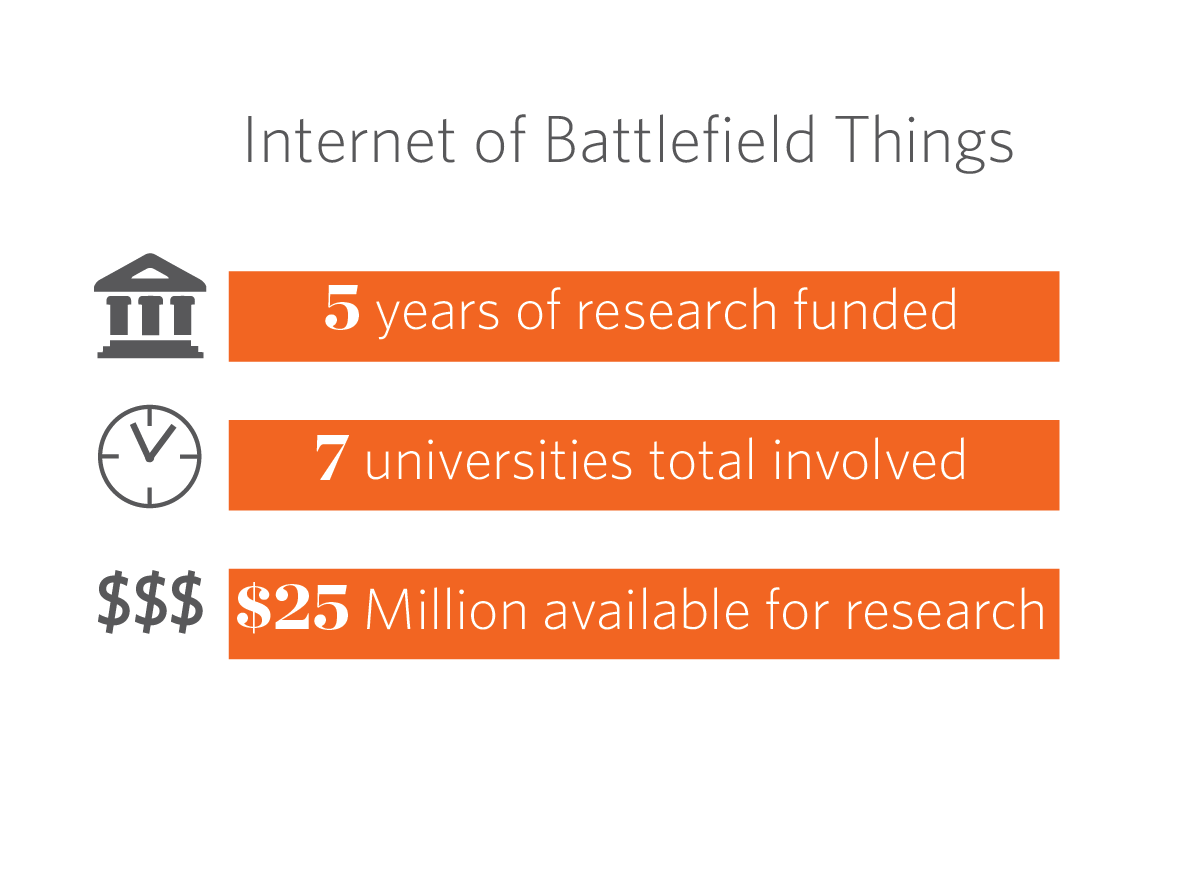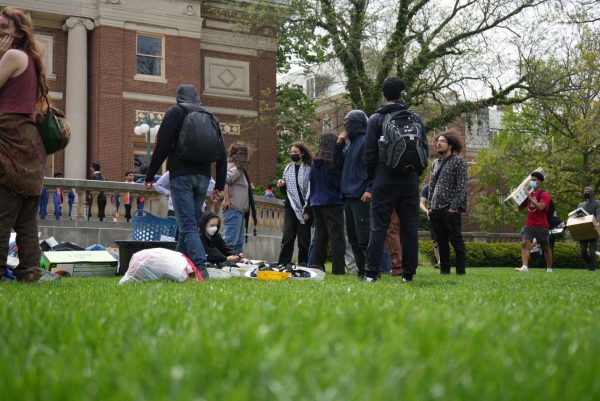Illinois chosen to lead $25 million research project
October 21, 2017
Computers and other cyber technologies are playing a more active role on the battlefield. To combat cyber threats, $25 million has been allocated to the University to conduct five years of research.
Tarek Abdelzaher, academic leader of the Alliance for Internet of Battlefield Things Research on Evolving Intelligent Goal-Driven Networks, said he believes saving lives on and off the battlefield is a key goal of the overall research.
“We don’t want to primarily rely on human effort,” he said, “especially in dangerous situations.”
The University will lead this initiative funded by the Army Research Laboratory and will collaborate with five other schools in the nation.

Source: University of Illinois, Department of Computer Science
The Internet of Battlefield Things develops technology to use on the battlefield for the Army’s benefit. For example, the IoBT helps develop artificial intelligence, autonomous robotics and cyber-physical systems.
Get The Daily Illini in your inbox!
According to Abdelzaher, this research could help off the battlefield as well.
He said that even though the funding will come from the Army Research Laboratory, there is potential that the developed technology could help in times of need, such as natural disasters or mass shootings.
“We get to solve a real problem. If we are successful, we believe it saves lives,” Abdelzaher said.
The money awarded will cover the first five years, and if successful, another five years will be funded.
As the Army’s technology advances, usually so do the adversaries’ technologies. This is something the research team will keep in mind, he said.
“(The military’s) technology is also improving,” Abdelzaher said. “It might not be unexpected for these adversaries to also have robotic equipment.”
The robotic equipment he is talking about has a lot to do with intelligent machines.
“We want to give machines the equivalence of reflexes,” Abdelzaher said.
He mentioned that when a person touches a hot stove, the instant reaction is to remove the hand quickly. This is the type of reflex Abdelzaher wants in a machine.
“They need to avoid threats and reconfigure themselves around threats if they actually suffered failures,” he said. “They need to do that very fast, almost like a reflex.”
Andreas Cangellaris, dean of the College of Engineering, is not directly involved with the Internet of Battlefield Things, but is more of a facilitator for the research that will take place.
Cangellaris said with research projects like this, proposals go through his office so he can make sure the strongest one is chosen and pursued.
“Our aspirations are always very high. It’s a truly innovative field,” Cangellaris said.
He said he also believes that one of the main goals for this research is to look after human lives, and that it goes far beyond just the military.
“All, in my mind, will benefit,” he said.






